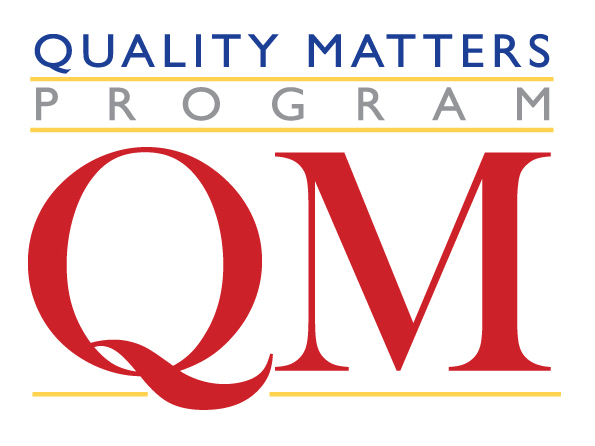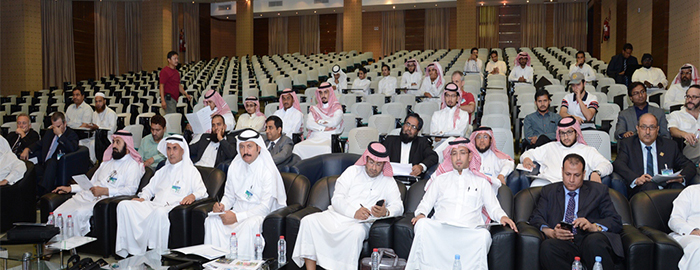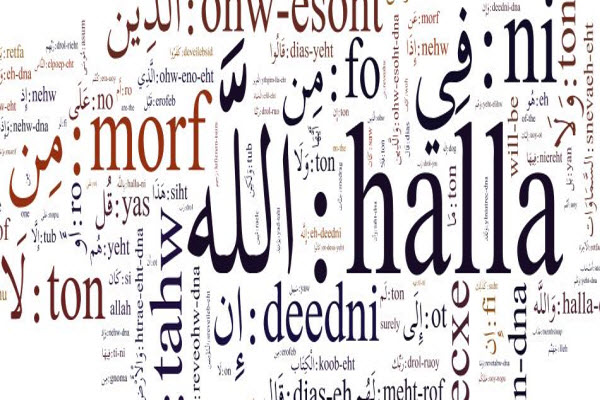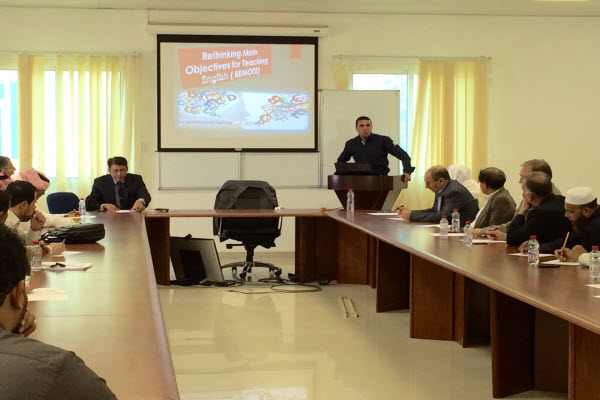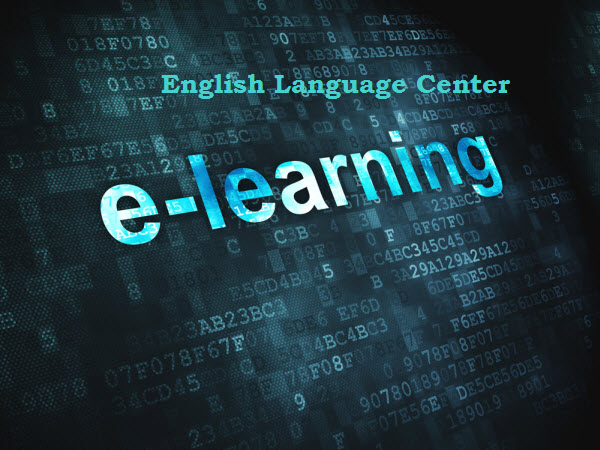News
Dr. Eyhab Bader Eddin, FLT Lecturer, gave (November 2, 2015) a keynote presentation on Translation, titled 'Pragmatic Equivalents in Translation.' Dr. Bader Eddin provided a helpful introduction saying 'life is a succession of communication-based speech act events, and we are revolving subconsciously around the field of Pragmatics, and we are orbiting this domain since the dawn of history.' He linked Pragmatics to Translation and explained the various types of the concept of 'equivalence,' i.e. referential, connotative, text-normative, pragmatic, and functional. He also described implicatures and their types, setting examples for pragmatic equivalence from literature, the Holy Quran, and political discourse. He gave a translation of the first line of verse of Shakespeare's 18th sonnet in a way that fascinated the audience. The presentation was concluded with some crucial questions related to the presentation.
Please view Dr. Eyhab Bader Eddin's presentation by CLICKING HERE.
Date: 11/02/2015
Primary Source: Faculty of Languages and Translation
Multimedia Contribution: Mohamed Tayseer
The Faculty of Languages and Translation held a computer-based test (CBT) for the 1st Midterm Exam in the International Test Preparation (ITP) Course. Matthew Paul and Hassan Costello developed, conducted, and supervised the CBT which was the first of its kind for the International Test Preparation Course. It is worth noting that offering a CBT for ITP’s Midterm Exam 1 produced many benefits, namely:
-Listening and reading sections that require candidates to demonstrate their comprehension by performing specific tasks.
-Immediate viewing of unofficial scores on screen (except for essays)
-Individual headphones and volume control
-Testing in comfortable, computer-equipped testing stations
-Enhanced test security
The instructors of ITP would like to extend their sincerest appreciation to the Managing Administration of the Faculty of Languages and Translation for their vision and constant support. A vote of thanks goes to the E-Learning Department for their continuous support.
Date: 10-28-2015
Source: Faculty of Languages and Translation
Mohsin Raza Khan, FLT E-Learning Supervisor, delivered a seminar on how to use the QM rubric when designing, implementing, and proctoring an E-Learning Course. The foundation of the workshop focused on the Eight General Standards he applied to the ENG 011 Intensive English Course. He received recognition in this course for meeting the rubric standards with the International Quality Matters (QM) Peer Review Board. The eight topic areas focused on are listed below.
The Eight General Standards:
Course Overview and Introduction
Learning Objectives (Competencies)
Assessment and Measurement
Instructional Materials
Course Activities and Learner Interaction
Course Technology
Learner Support
Accessibility and Usability
Mr. Mohsin also covered the various issues of alignment and explained what alignment means in your course. Please see information on alignment listed below.
What is Alignment?
Critical course components - Learning Objectives (2), Assessment and Measurement (3), Resources and Materials (4), Learner Engagement (5), and Course Technology (6) - work together to ensure that students achieve the desired learning outcomes. When aligned, each of these course components is directly tied to and supports the learning objectives. Specific Review Standards included in alignment are indicated in the Rubric Annotations.
Lastly, he illustrated the various experiences he obtained as a Certified Master Reviewer with the International Quality Matters(QM) Peer Review Board.
Date: 10/19/2015
Source: Faculty of Languages and Translation
Multimedia Contribution: MD Sirajul Islam
The E-Learning Unit and the English Language Center collaborated to organize a comprehensive 3-day online exam seminar focused on E-learning. The event was attended by the Managing Administration of the Faculty of Languages and Translation, as well as the Deanship of E-Learning, highlighting its significance.
Mr. Mohsin Raza Khan, the E-Learning Supervisor of the FLT, and Mr. Ali Al Amri, Lecturer, took charge of hosting the seminar. The primary objective of the seminar was to provide students with thorough training on the procedures, methods, and best practices for taking E-Learning exams. The seminar garnered substantial attendance, with approximately 400 students participating.
The seminar aimed to equip students with the necessary knowledge and skills to effectively navigate E-Learning exams and ensure a smooth examination experience.
The English Club sponsored a seminar on academic writing at the College of Languages and Translation. The guest speaker was Dr. Charles Forman, Assistant Professor. This seminar was an introduction to academic writing skills and procedures.
This well-attended lecture covered a variety of critical writing topics. Dr. Forman examined the reasons why many students face difficulties in academic writing, and the importance of overcoming these challenges. Also, Dr. Forman provided insight into that which is expected of them in their writing in a university environment and reviewed ways in which students can improve their writing skills.
Date: Fall 2015
Source: Faculty Languages and Translation
Multimedia Contribution: English Club
In coordination with the E-Learning Deanship, the FLT organized an E-learning Workshop for its new academic staff.
For questions or comments, please email otaiff@kku.edu.sa
The FLT, represented by its Research Centre, had organized its own Research Day. His Excellency the Dean of the Faculty of Languages and Translation started the event by welcoming the participants. Different papers in linguistics, applied linguistics, and ELT were presented.
Date: 09/08/2015
Source: Vice Dean for Academic Development and Quality, Dr. Fahad Otaif
The KKU English Club recently organized an exciting and informative trip to Makkah and Jeddah. The students took part in a full program of activities while visiting a variety of locations and institutions.
The highlights of the trip included:
Visiting Makkah and performing Umrah
Viewing the project in Makkah called "Assalam Alik Ayoha Annabi" (PBUH)
Touring King Abdulaziz University in Jeddah
Visiting Kaust's "Museum of Science & Technology in Islam."
Participating in a variety of educational & entertaining programs
All KKU students are eligible to join the English Club and are cordially invited to find out more about the Club and participate in the Club’s activities.
Date: Spring 2015
Source: Faculty of Languages and Translation
Multimedia Contribution: English Club
On Monday, April 13, 2015, the Faculty of Languages and Translation at King Khalid University had the honor of hosting a distinguished delegation from the University of Malta. This illustrious visit was marked by interactions between the Maltese dignitaries and notable figures from King Khalid University including Dr. Abdullah Al-Melhi, Dean, Dr. Ahmed Ismail Assiri, Vice Dean, Dr. Abdulkhaleq Al Qahtani, Vice Dean of Academic Development & Quality, Dr. Ali Alamir, Chair of the English Department, and Dr. Ahmed Al Faifi, Chair of the MA in Translation Program.
Together, they embarked on an insightful tour of various academic facilities. These included the advanced FLT Listening Labs, the dedicated FLT Language Enhancement Program, and the innovative hub at the Deanship of E-Learning. The tour provided a platform for showcasing the high standard of educational resources and commitment to quality learning at King Khalid University.
Dr. Abdullah Al-Melhi voiced his earnest intention to cultivate a fruitful relationship between King Khalid University and the University of Malta that would benefit both institutions. This sentiment was warmly reciprocated by Professor Juanito Camilleri, Rector of the University of Malta, who emphasized the University's eagerness to build robust ties with King Khalid University across all areas of academia.
Furthermore, the visiting delegation from the University of Malta showcased a series of presentations elucidating the wide spectrum of services, capabilities, and achievements that their University boasts. The audience consisted of faculty members from both the male and female campuses at King Khalid University, as well as students from varying academic levels. The event was broadened through a live telecast that allowed numerous satellite campuses of King Khalid University to participate actively.
The visit concluded with the Maltese delegation expressing gratitude for the hospitality they received and reinforcing their belief that this visit has laid a strong foundation for a deepening relationship between the University of Malta and King Khalid University.
Date: 04/14/2015
Source: Faculty of Languages and Translation
Multimedia Contribution: MD Sirajul Islam
Abdullah Omar, FLT graduate, and an ongoing student in the MA program in Applied Linguistics was recently awarded a Certificate of excellent achievement in English and First Class Honors. Abdullah received the Certificate during a University ceremony that honored students from the many different fields of academic specialization in both the undergraduate and graduate programs. The Certificate was presented to Abdullah by His Royal Highness (HRH) Prince Faisal Bin Khalid Bin Abdulaziz, the Governor of Asir Region. Abdullah had the exclusive chance of meeting HRH, and receiving congratulations for his academic achievement. He also had the honor of receiving congratulations from the President of the University, Professor Abdulrahman Bin Hamad Al Dawood.
Abdullah expressed gratitude to all of his teachers and friends, and especially to his mother, for their constant support and encouragement.
He wished the best of luck to all students in the English Department, reminding them of how steady, focused work and commitment are the keys to achieving their goals.
Date: Spring 2015
Source: Faculty of Languages and Translation
The Language Research Center hosted an insightful presentation on, “Lexical Non-Equivalence in Translation.” The presenter, Dr. Eyhab Abdulrazak Bader Eddin, led us through a series of theoretical settings, critical analyses, lexical incongruence patterns, and referential meaning perspectives. The primary aim of his seminar was to illustrate concrete examples that there is no exact equivalence of meaning between the words of different varieties of languages. He referenced Leonard Bloomfield’s famous quote, ‘If the forms (of words) are phonemically different, we suppose that their meanings are also different.'
Four key translation problems arising from lexical incongruence were addressed by Dr. Eyhab during the seminar to include but not limited to:
1. Terms that are ONLY partially equivalent
2. Terms with the same referential meaning but different stylistic value
3. Terms with the same referential meaning but different connotation
4. Terms with the same referential meaning but different intensity
You can view the presentation by clicking HERE.
For more information, please email Dr. Eyhab Abdulrazak Bader Eddin at ealdeen@kku.edu.sa
Date: Spring 2015
Source: Faculty of Languages and Translation
Multimedia Contribution: MD Sirajul Islam
Ibrahim Al-Hilali, FLT Alumnus, received recognition from the Governor of Mohaiyl, His Excellency, Muhammad Bin Sabra and the President for Social Development, Dr. Hamza Al Fathahi. Additionally, the KKU excellence award was presented to Ibrahim for his outstanding contributions by His Excellency, University President, Professor Abdulrahman Al-Dawood. Ibrahim established the Afkaruna Foundation which is formed by successful young people who meet to talk and engage life and societal issues. The foundation also shares success stories to inspire others. The Afkaruna Foundation received a 20,000 SAR donation from the Governor of Mohaiyl. Congratulations Ibrahim! We are proud of your achievement! For more information on how to get involved with the Afkaruna Foundation, please use the contact details below.
Ibrahim Al-Hilali, Afkaruna Foundation President
Call 053-250-8475 or Email Ibrahimalhlali@gmail.com
Date: Spring 2015
Source: Faculty of Languages and Translation
The Language Research Center hosted a lively seminar conducted by Lecturers Mr. Eisa Al-Eisa and Mr. Ibrahim Alasmri. Please click the links below for the themes of the discussion.
Code of Ethics in Translation – Eisa Al-Eisa, Lecturer
Cohesion of Translated Language – Ibrahim Alasmri, Lecturer
Date: Spring 2015
Source: Faculty of Languages and Translation
The Language Research Center hosted a lively presentation on, “Rethinking Main Objectives for Teach English.” The presenter, Dr. Abdelhamid Bessaid, led us through a series of critical strategies, viewpoints, and pedagogical theories. The primary aim of his seminar was to compare the particular linguistic practices into which learners are socialized outside their schools with the practice they encountered inside their institutions. He related that language is “par excellence” and that the paramount question under debate is what are the kinds of approaches to meet the new challenges?
Varying questions were addressed by Dr. Bessaid during the seminar to include but not limited to:
What do non-native students/learners need to do with English?
Which of the skills do they need to master and how well?
For more information, please email Dr. Abdelhamid Bessaid at amabsaeed@kku.edu.sa
Date: Spring 2015
Source: Faculty of Languages and Translation
Multimedia Contribution: MD Sirajul Islam
On February 25, 2015, the Literature Club organized a talk, first of its kind, titled Fable: Story with a moral. The discussion was presided over by the club coordinator, Md. Shahrear Talukder. Mr. Erich Beer, Lecturer, Department of English, gave the speech. In his enthralling 30 minutes presentation, he opened a new window to look at stories, in particular, fables from continents. Mr. Erich’s content of the talk was lucid and succinct enough to cause awe among the young students of the department. Though brief, this discussion encouraged students who are planning to choose literature as their major in future.
Date: Spring 2015
Source: Md. Shahrear Talukder
The English Club in coordination with the Deanship of Student Affairs hosted a workshop titled “How to Improve Your English Communication Skills.” The event occurred on February 18, 2015, in Auditorium 6. It was a lively event that drew a crowd of nearly 500. Hassan Costello, language instructor, covered different topic areas to include:
Intrapersonal Communication
Interpersonal Communication
Small Group Communication
Public Communication
Costello: Practice will build your accuracy. Accuracy will build your confidence. Confidence will build your fluency. Be patient and make many mistakes. Those mistakes are incredibly valuable learning opportunities!
Certificates will be distributed to all workshop attendees in the coming weeks. A vote of thanks goes to Dean Abdullah Al-Melhi for facilitating this event. In addition to all members of the English Club, further recognition goes to the following for making this event a success:
Ibrahim Al-Asmari, director of student affairs
Abdullah Al-Ahmari, student activities president
Yusef Al-Shahrani, professional photographer
Saeed Al-Ahmari, professional photographer
Date: Spring 2015
Source: Faculty of Languages and Translation
On Monday, February 9, 2015, Dr. Muteb Al Qarni talked about the morphosyntax of Numeral-Noun Constructions (NNC) in Modern Standard Arabic (MSA) in a seminar organized by the Language Research Centre.
Dr. Al Qarni's presentation was centered Numeral-Noun Constructions (NNC) in Modern Standard Arabic (MSA). He emphasized that the lexical categorization of Arabic numerals provide insights into their syntactic structures and accounts for their inflectional patterns in terms of position, agreement, case, and (in) definiteness. He related that Arabic numerals do not belong to a uniform lexical category. Rather, each class of numerals belongs to a different category: 1-2 are adjectives, 100/0, 200/0 and 20-90 are nouns, and 3-10 are quantifiers.
He, while talking about his dissertation, also discussed the gender polarity in 3-10 and proposed that 3-10 are inherently feminine and their feminine feature is deleted in the presence of a feminine counted noun due to OCP effect. As for case, it was proposed that all numerals assign genitive to the counted noun. However, 20-90 differ in that genitive defaults to accusative by an impoverishment rule.
The presentation was worthwhile and in-depth.
For further questions and comments please email MutebAlqarni@gmail.com
Date: Spring 2015
Source: FLT Web Team
Under the supervision of Dr. Abdullah Al Melhi, Dean, Midterms and Final examinations of the English Language Center (ELC) for the First Semester 1435-36 were successfully conducted online via Blackboard.
The tests of ENG 011, ENG 012 and ENG 015 took place in e-Learning Labs (A/1/72, A/1/74, A/1/75, A/1/76 & A/2/83). Approximately 2,000 students took the examination.
Dr. Ahmad Ismail Assiri, Vice Dean, expressed his satisfaction and gratitude towards the adopted pattern of online exams.
Mr. Abdullah Al-Rezgi, Director of the English Language Center, extended his thanks to the E-Learning Deanship and its team for helping the center towards making the online exams a success. Mr. Al-Rezgi mentioned that the exam was a big challenge for the center because of the large number of students. He asserted that the security of the online exams and the reduction of use of unfair means were major concerns. To address these issues more than 85 sets of Listening, Reading & Grammar tests were administered. As part of zero tolerance policy against “use of unfair means,” a total of 111 sets were made and deployed in ENG 011 course alone.
Mr. Mohsin Raza Khan, Supervisor of E-Learning Unit, employed the following strategies in the exam:
The Firefox browser was used in Listening, Reading & Grammar exams
The ELC Exam Committee prepared invigilator checklists and provided to invigilators
Invigilators entered the exam passwords after students had opened their exam start page
Double password policies were employed
It is worth noting that all technical problems were reported and resolved by on-duty staff as per the agreed format. Mr. Khan also mentioned that E-Learning training workshops on online assessment were organized for students and new faculty members before the exam.
Mr. Abdullah Zubain, E-Learning Specialist, expressed his gratitude and appreciation to the Faculty for adopting best practice security measures and conducting successful online exams.
Special recognition for their efforts and outstanding teamwork goes to faculty members listed below.
Mr. Javed Ahmed, General Coordinator of ELC
Mr. Rizwan Ghani, Coordinator of ENG 011
Mr. Farouk Haji, Coordinator of ENG 015
Mr. Jahangir Alam, Coordinator of ENG 012
Mr. Salahuddin Abdulrab, Head of the ELC Examination Committee
Dr. Mohammed Asif Ishfaq, Coordinator of Online Examinations
Mr. Ahmed Sholan, In-Charge of E-Learning Lab
All the faculty members of the ELC extended their full cooperation as invigilators to make online exams successful. They entered the passwords, guided the students on how to submit their tests, checked grades and collected feedback when needed. They did an excellent job of invigilation in the most demanding circumstances involving thousands of students from 8:00 AM to 6:00 PM.
Mr. Abdullah Al-Rezgi applauded the contribution of all coordinators and invigilators and thanked them for their hard work and commitment.
Date: Spring 2015
Source: Faculty of Languages and Translation
Under the patronage of Dr. Abdullah Al-Melhi, Dean, the E-Learning Unit of the College organized an E-Learning Workshop for M.A. students of the College.
Mr. Mohsin Raza Khan, Supervisor of the E-Learning Unit, conducted the seminar and presented a detailed presentation titled “E-Learning & Blackboard.” He pointed out the importance of the e-Learning in today’s world. He introduced the students to the basic as well as advanced tools of Blackboard. Mr. Khan gave training on the practical use of the Blackboard tools such as Announcements, Lectures, Assignments, E-Tests, the Discussion Board, Blackboard Elluminate Live, Wikis and Course Messages. He also explained the concepts of the supportive levels, blended levels, and full E-Learning courses. Additionally, he mentioned the Quality Matters Program and referred to eight general standards and forty-three specific standards of QM program to assure the quality of e-learning courses.
Date: Spring 2015
Source: Faculty of Languages and Translation
The Language Research Center at King Khalid University organized a seminar on December 01, 2014 that included a presentation conducted by Mr. Mohammad Adil, which was titled Our Coursebooks: Friends and Foes? It gave an overview of the effectiveness of our textbooks used in the skill courses at four levels in the Department of English. The presentation was primarily based on a case study he had conducted to determine how effective the teachers in Department of English think these books are. The findings of the case study resulted in some practical suggestions regarding the efficient and judicious use the of textbooks. He emphasized proper adaptation of them according to learners’ needs even if the books are well-designed. The presentation was followed by an interactive discussion during which the participants shared their views, made comments and raised some questions. Overall, The Language Research Center found the presentation worthwhile, which will cater to the curriculum development at the Faculty of Languages and Translation in the future.
Date: Fall 2014
Source: Faculty of Languages and Translation
Multimedia Contribution: MD Sirajul Islam



